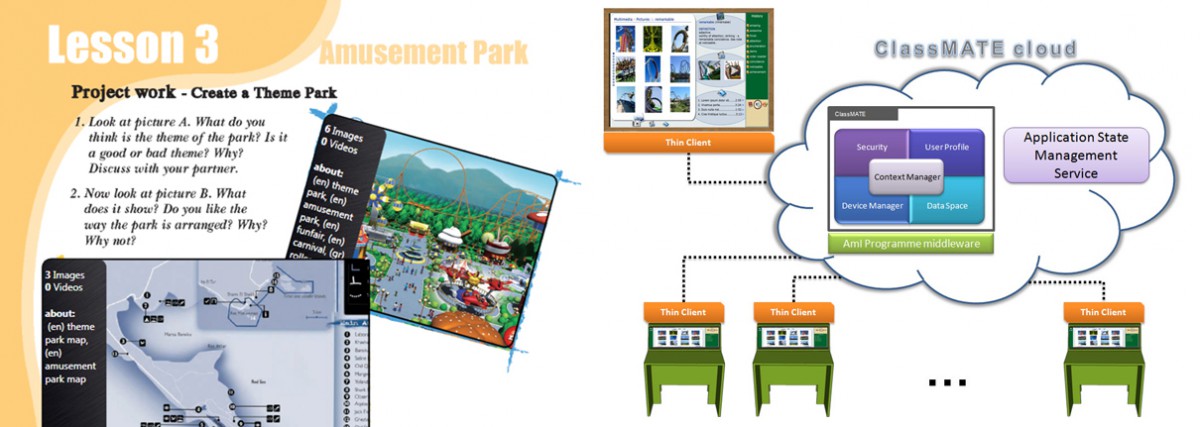
The ClassMATE framework enables context aware education in the classroom
ClassMATE aims to transform the conventional classroom into a context aware AmI environment. It constitutes an integrated architecture for pervasive computing environments, used to transform the conventional classroom into a context-aware AmI environment. ClassMATE facilitates fundamental issues such as heterogeneous interoperability of AmI services, synchronous and asynchronous communication, resilience, security, context aware orchestration and ease of use in the intelligent classroom of the future. A key feature of the ClassMATE architecture is the education-centric approach that has been adopted during its design.
In the context of the classroom, ClassMATE is responsible for: